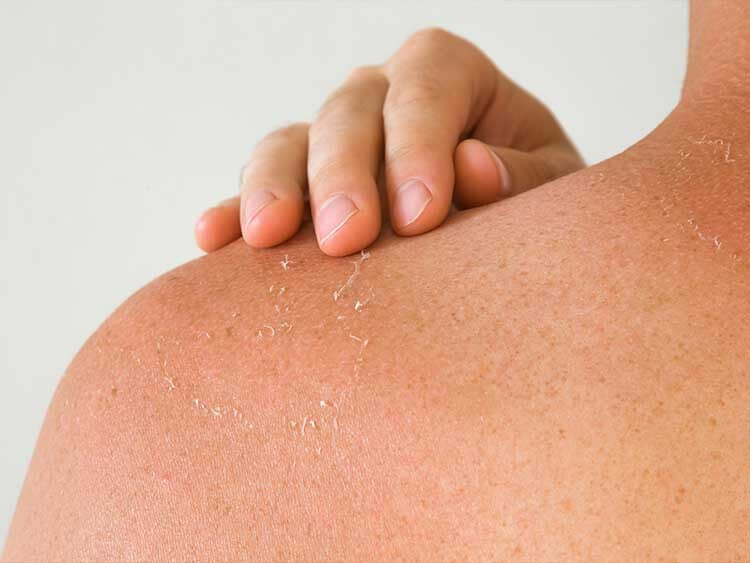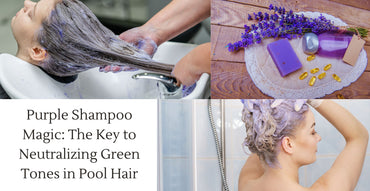Incorporating natural therapies, changing nighttime habits, and changing lifestyle choices can all contribute to restful nights and improved sleep quality. We'll look at a few ideas in this blog that can help you sleep better.
Introduction: The Importance of Quality Sleep

Good sleep has a significant impact on one's physical and mental health, making it a crucial element of total wellbeing. It is impossible to overestimate how important it is to have restful nights in our hectic and demanding lives. Still, a lot of people struggle with sleep disorders, which can result in several health problems like elevated stress, diminished cognitive performance, and a compromised immune system. Recognising the importance of good sleep for the body's restorative and rejuvenating processes is essential to understanding its relevance. The body makes vital repairs when we sleep, and the brain organises memories and manages emotions. Reduced risk of chronic illnesses like diabetes and cardiovascular diseases, as well as an improved mood and increased capacity for concentration, are all associated with getting enough restful sleep.
Understanding the Impact of Sleep on Overall Wellbeing
Sleep is essential for determining and preserving general wellness. The significance of prioritising high-quality sleep is highlighted by the substantial effects of sleep on numerous facets of both physical and mental health. Here's a closer look at how sleep affects various aspects of well-being, including longevity, metabolic function, stress response, mental and physical health, and cardiovascular health. Understanding how sleep affects both physical and mental health empowers people to make well-informed lifestyle decisions that lead to happier, healthier lives.
Key Natural Sleep Aids and Their Benefits

To encourage better sleep, you can integrate a few natural sleep aids into your regimen. It's crucial to remember that each person may react differently to these treatments, and it's best to speak with a healthcare provider before attempting new supplements or making big lifestyle adjustments. The following are some important natural sleep aids and possible advantages:
-
Melatonin: A hormone called melatonin controls the cycle of sleep and wakefulness. Melatonin supplements may aid in informing the body when it is time to go to sleep. It is very helpful in treating jet lag and sleep problems brought on by shift employment.
-
Valerian Root: The herb valerian is well-known for its relaxing effects. It might shorten the time it takes to fall asleep and enhance the quality of sleep. Valerian root is often used as a supplement or in herbal teas.
-
Chamomile: The herb chamomile has long been utilised for its sedative properties. Popular before bed, chamomile tea is thought to offer moderate sedative qualities that encourage relaxation.
-
Lavender: Lavender has aromatherapeutic properties that may help induce relaxation and improve sleep quality. It can take the form of essential oils, sachets, or sprays.
-
Magnesium: Magnesium is a mineral that regulates muscle and nerve function. It may help relax muscles and calm the nervous system, which can lead to better sleep. Magnesium supplements or magnesium-rich foods may be beneficial.
-
Passionflower: Passionflower is an herb known for its calming properties. It may help reduce anxiety and improve sleep by increasing levels of gamma-aminobutyric acid (GABA), a neurotransmitter that promotes relaxation.
-
Ashwagandha: Ashwagandha is an adaptogenic herb that may help the body adapt to stress. It has been investigated for its ability to improve sleep quality and reduce stress and anxiety.
-
5-HTP (5-Hydroxytryptophan): 5-HTP is a precursor for serotonin, a neurotransmitter that regulates mood and sleep. Supplementing with 5-HTP may help improve sleep by increasing serotonin synthesis.
-
Glycine: Glycine is an amino acid that may have calming properties. It can be found in protein-rich foods and taken as a supplement. Some research suggests that glycine supplementation can improve sleep quality.
It is critical to use natural sleep aids with caution and, if necessary, under the supervision of a healthcare professional. Adopting healthy sleep hygiene practices, such as keeping a consistent sleep schedule and developing a relaxing bedtime routine, can also be used in conjunction with natural sleep aids to achieve the best results.
The Role of Melatonin in Regulating Sleep Cycles
Melatonin is a hormone that plays a critical role in regulating the sleep-wake cycle, commonly known as the circadian rhythm. Melatonin, which is secreted by the pineal gland in response to darkness but inhibited by light, helps the body know when it is time to sleep and wake up. The following are the main elements of melatonin's function in controlling sleep cycles:
-
Circadian Rhythm Regulation: Melatonin is an essential component of the circadian rhythm, a natural, internal process that regulates the sleep-wake cycle and occurs approximately every 24 hours. The circadian rhythm is influenced by external cues, primarily light and dark.
- Light and Darkness Influence: Melatonin production is influenced by exposure to light. The pineal gland releases melatonin in the evening as natural light levels drop, alerting the body to the appropriate time to wind down and get ready for sleep. On the other hand, light exposure, particularly blue light from electronics, can reduce the production of melatonin and make it harder to fall asleep.
- Sleep Onset Facilitation: Melatonin reduces body temperature and induces feelings of tiredness, which aids in the onset of sleep. The body uses this hormone release to go from wakefulness to sleep.
- Jet Lag and Shift Work: Sometimes people take melatonin supplements to help with shift work-related sleep problems or jet lag symptoms. Resetting the circadian rhythm and promoting sleep following the new time zone or work schedule can be accomplished by taking melatonin pills in the evening.
- Age-Related Changes: Melatonin production tends to decrease with age, which may contribute to sleep disturbances in older adults. It is occasionally advised to take melatonin supplements for people whose sleep patterns are changing as they age.
- Sleep Disorders: Researchers are looking into melatonin as a possible treatment for some sleep disorders, like insomnia. Its effectiveness can vary, though, so speaking with a healthcare provider about its use is advised.
-
Natural and Synthetic Sources: The body produces melatonin naturally, but synthetic melatonin supplements are available over the counter. These supplements are frequently used as a temporary solution to sleep problems, but their long-term safety and effectiveness are still being investigated.
It's crucial to remember that melatonin is only one part of a complicated system that controls sleep, and that different people will respond to it differently. Before taking melatonin supplements, it is best to speak with a healthcare provider, particularly if you have any underlying medical conditions or are currently taking other medications. Furthermore, maintaining a regular sleep schedule and setting up a comfortable sleeping environment are examples of healthy sleep hygiene practices that are critical to the overall quality of sleep.
Exploring Herbal Remedies: Valerian Root and Chamomile Tea
Traditional herbal remedies for relaxation and improved sleep include valerian root and chamomile tea. While individual responses may differ, these natural options are generally considered safe and can be used as part of a comprehensive approach to better sleep. Here's a look at the benefits and applications of valerian root and chamomile tea:
Valerian Root:
-
Calming Properties: Valerian root has been used for centuries for its calming and sedative effects. It contains compounds that may help to calm the central nervous system.
-
Sleep Aid: Valerian root is commonly used as a natural treatment for insomnia and sleep disorders. It may improve sleep quality and shorten the time it takes to fall asleep.
-
Reducing Anxiety: Some studies suggest that valerian root may have anxiolytic (anxiety-reducing) effects, which could help promote relaxation before bedtime.
-
GABA Regulation: Valerian root may interact with GABA, a neurotransmitter in the brain that promotes relaxation and sleep.
-
Forms of Use: Valerian root is available in various forms, including capsules, extracts, and teas. It is often taken about an hour before bedtime for its sleep-inducing effects.
Chamomile Tea:
-
Calming and Antioxidant Properties: Chamomile tea is renowned for its calming and antioxidant properties. It contains compounds such as apigenin, which may interact with brain receptors to promote relaxation.
-
Anxiety and Stress Reduction: Chamomile has been studied for its ability to alleviate symptoms of anxiety and stress. Drinking chamomile tea may have a soothing effect on the nervous system.
-
Mild Sedative Effect: The mild sedative effect of chamomile can help ease tension and promote a sense of calm, making it a popular bedtime beverage.
-
Digestive Benefits: Chamomile is known for its digestive properties, which may help alleviate gastrointestinal discomfort and contribute to overall relaxation before bedtime.
-
Preparation and Consumption: To make chamomile tea, simply steep dried flowers in hot water. It is caffeine-free, making it ideal for an evening beverage.
While valerian root and chamomile tea are generally safe, they may not be appropriate for everyone. If you are concerned about your sleep or are considering using herbal remedies, consulting with a healthcare professional is a good idea to ensure that these options are consistent with your overall health and wellness goals.
The Calming Effects of Lavender Oil for Improved Sleep
Lavender oil is popular among those looking for natural ways to improve the quality of their sleep due to its well-known relaxing and soothing properties. Lavender oil is frequently linked to aromatherapy, an all-encompassing approach that employs essential oils to enhance both physical and emotional health. This is an investigation into the relaxing properties of lavender oil and how it might improve sleep:
-
Lavender oil is believed to have anxiolytic (anxiety-reducing) effects. Inhaling lavender's aroma may promote relaxation, reducing stress and tension.
-
The scent of lavender is thought to interact with the central nervous system, influencing neurotransmitters and receptors involved in mood and emotions.
-
Aromatherapy with lavender oil can improve sleep quality. The calming aroma may aid in the initiation of sleep and lead to a more restful night.
-
Lavender oil may reduce heart rate and blood pressure, indicating its potential to induce relaxation.
-
The scent of lavender can create a positive association in the mind, signalling the time to wind down and prepare for sleep. This mind-body connection can be an important part of a bedtime routine.
Considerations:
-
Choose high-quality, pure lavender oil for the best results. Look for oils marked as "100% pure" or "therapeutic grade."
-
Individuals' responses to aromatherapy can vary. Experiment with various methods and concentrations to determine which works best for you.
-
If you have allergies, respiratory problems, or other health concerns, speak with a doctor before using essential oils.
While lavender oil can be an effective tool for promoting relaxation and improving sleep, it must be used in conjunction with a comprehensive sleep hygiene regimen. Establishing a consistent bedtime routine, creating a comfortable sleep environment, and practicing relaxation techniques can help to enhance the calming effects of lavender oil and improve sleep quality.
Implementing Lifestyle Changes for Better Sleep

Implementing lifestyle changes is an important step towards better sleep. Consistent, healthy habits can improve your sleep quality. Here are some lifestyle changes to improve your sleep:
-
Develop a Consistent Sleep Schedule: Go to bed and get up at the same time every day, even on weekends. This helps regulate your body's internal clock, allowing you to fall asleep and wake up naturally.
-
Create a Relaxing Bedtime Routine: Create relaxing bedtime routines that include reading a book, having a warm bath, or other relaxation techniques. Your body will receive this as a cue to wind down.
-
Optimize Your Sleep Environment: Keep the bedroom cool, dark, and quiet. Invest in a comfortable mattress and pillow. Remove electronic devices to reduce disruptions and create a relaxing environment.
-
Limit Exposure to Screens Before Bed: The blue light emitted by screens can disrupt melatonin production. Aim to avoid screens at least an hour before bedtime, and use "night mode" settings on devices.
-
Watch Your Diet: Be mindful of what and when you eat, especially close to bedtime. Avoid heavy meals, caffeine, and nicotine in the hours preceding sleep. If you are hungry, choose a light, balanced snack.
-
Regular Exercise: Exercise regularly, but try to finish a few hours before bedtime. Exercise can promote better sleep, but vigorous activities too close to bedtime may have the opposite effect.
-
Manage Stress: Deep breathing, meditation, and yoga are all effective stress-reduction techniques. Managing stress is critical for achieving a relaxed mental state conducive to sleeping.
-
Limit your naps: If you need to nap, make it short (20-30 minutes) and avoid napping late in the day. Long or late-afternoon naps may interfere with nighttime sleep.
-
Moderate Your Sleep Environment: Ensure that your bedroom is comfortable and conducive to sleep. To reduce disturbances, consider using blackout curtains, white noise machines, or earplugs.
-
Assess Your Mattress and Pillows: Your mattress and pillows have a significant impact on the quality of your sleep. If they are old or uncomfortable, consider investing in new ones that will better meet your sleep requirements.
-
Limit Fluids Before Bed: While staying hydrated is important, try to limit your fluid intake in the evening to avoid frequent bathroom trips during the night.
-
Seek Natural Light Exposure: Exposure to natural light during the day helps to regulate your circadian rhythm. Spend time outdoors, particularly in the morning, to help your body maintain its natural wake-sleep cycle.
-
Avoid Stimulating Activities Before Bed: Engage in calming activities before bedtime. Avoid stimulating activities like work-related tasks or intense discussions.
-
Establish a Wind-Down Period: Allow yourself some time to wind down before bed. Avoid engaging in stimulating or stressful activities that might interfere with your ability to relax and fall asleep.
Keep in mind that it could take some time before you see a notable improvement in your sleep. Maintaining consistency and implementing adjustments that best suit your unique requirements and preferences are crucial. Seeking individualised counsel and advice from a healthcare expert should be considered if sleep problems continue.
Enhancing Sleep Hygiene: Creating a Relaxing Bedtime Routine
Creating a relaxing bedtime routine is an important part of sleep hygiene because it signals to your body that it is time to unwind and prepare for sleep. Establishing a consistent schedule, beginning wind-down activities early, dimming the lights, limiting screen time, reading a book, taking a warm bath, practicing relaxation techniques, listening to calming music or nature sounds, using aromatherapy, setting up your sleep environment, avoiding caffeine and heavy meals, reflecting and journaling, stretching or doing gentle yoga, creating a symbolic "switch-off" ritual, keeping your bedroom clutter-free, avoiding clock-watching, and limiting worrying thoughts are some suggestions for improving your bedtime routine to foster a more peaceful and sleep-inducing atmosphere. These components can help you establish a regular, relaxing pre-sleep ritual that promotes improved sleep hygiene when you incorporate them into your bedtime routine. Try out a variety of activities to see what suits you the best, and be patient as your body gets used to the new schedule.
Utilizing Relaxation Techniques for Stress Reduction
Effective methods for lowering stress and fostering calmness include relaxation techniques. By incorporating these methods into your daily routine, you can improve your general well-being and stress management. Deep breathing, progressive muscle relaxation (PMR), mindfulness meditation, guided imagery, autogenic training, yoga, tai chi, aromatherapy, biofeedback, laughter therapy, massage, and time spent in nature are some of the relaxation techniques that you can use to reduce stress. Keep in mind that different people react differently to different relaxation techniques, so it's important to try out numerous approaches and find the one that works for you. Regularly practicing and incorporating these practices into your daily routine can help you live a more balanced and stress-resistant lifestyle.
Understanding the Connection Between Diet, Exercise, and Sleep
The relationship between diet, exercise, and sleep is complex and bidirectional. Each component influences the others, and adopting healthy habits in all three areas can help with overall well-being. Here's a breakdown of how diet, exercise, and sleep are related:
-
Diet and sleep issues include meal timing, caffeine and stimulants, alcohol, a balanced diet, and hydration.
-
Exercise and sleep include topics such as exercise timing, exercise types, consistency, outdoor exercise, and mind-body exercises.
-
Sleep and Diet/Exercise topics include sleep and hunger hormones, sleep and physical performance, sleep and metabolism, and sleep and mood.
Tips for Improving the Connection:
-
Maintain consistent sleep, exercise, and mealtime routines to promote a healthy circadian rhythm.
-
Eat a balanced diet with carbohydrates, proteins, and healthy fats to improve energy and overall health.
-
Stay hydrated throughout the day, but limit fluid intake before bedtime.
-
Monitor caffeine and alcohol consumption, particularly in the evening.
-
Maintain regular physical activity, but aim to finish a few hours before bedtime for better sleep.
-
Prioritise sleep as essential for overall health and wellness.
-
Pay attention to how your body reacts to various foods, exercise routines, and sleep schedules. Adjust according to your specific needs and preferences.
Individual responses may vary, so it is important to find a balance that works for you. If you are having trouble sleeping or have specific dietary or exercise concerns, seek personalised advice from a healthcare professional, such as a registered dietitian or a sleep specialist.
Personalized Approaches to Addressing Sleep Challenges

A customised strategy is frequently necessary to address sleep challenges because different people may have various causes and symptoms of their sleep problems. Based on unique sleep concerns, such as difficulty falling asleep (insomnia), difficulty remaining asleep, daytime sleepiness, shift work sleep disorder, and anxiety or stress-related sleep issues, these personalised techniques may be of interest. It's vital to recognise that managing sleep difficulties may entail a combination of solutions, and finding the optimal strategy frequently involves some experimenting. Furthermore, getting advice from medical specialists—such as psychologists, registered dietitians, or sleep specialists—can offer tailored evaluations and recommendations based on unique situations if sleep issues continue.
Exploring Individualized Sleep Solutions and Treatments
Individualised sleep solutions and treatments may differ depending on the specific sleep issues a person is experiencing. Here are some ideas for personalised approaches to addressing sleep issues:
-
Sleep Assessment: Track your sleep patterns, nighttime rituals, and day routines in a thorough sleep diary for at least a week. This may provide important information about sleep-related issues. To discuss your sleep difficulties and have a thorough sleep evaluation, make an appointment with a healthcare provider, such as a primary care physician or sleep specialist.
-
Lifestyle Adjustments: Adopt individualised sleep hygiene habits, such as adhering to a regular sleep schedule, enhancing the sleeping environment, and minimising stimulant use right before bed. Take into account modifying your diet by personal sensitivity. If specific foods are avoided or nutrients that promote sleep are consumed, some people may experience relief from their sleep problems. Make a workout regimen that fits your time and preferences. Try out various workout routines and times to see what works best for your sleep.
-
Cognitive and Behavioral Approaches: Consider cognitive behavioural therapy (CBT-I), an organised therapeutic method that targets the beliefs and actions causing sleep problems, if insomnia is a problem. Examine stress-reduction methods like mindfulness, meditation, or counselling to deal with underlying issues preventing you from getting enough sleep. Include individualised relaxation methods based on personal preferences, such as progressive muscle relaxation, guided visualisation, or breathing exercises.
-
Sleep Environment Optimization: Make your sleeping environment unique by utilising bedding that suits your preferences, changing the temperature of the room, or adding sleep aids like aromatherapy or white noise devices. Consider how you use electronics in bed. Try using apps that encourage relaxation, screen filters, or blue-light-blocking gadgets.
-
Medical Interventions: If lifestyle changes and behavioural therapies are insufficient to treat sleep problems, talk to a healthcare provider about the potential of medication. Based on the particular type of sleep problem, medication may be recommended. If sleep disorders like sleep apnea, restless legs syndrome, or other medical diseases are suspected, think about having a sleep study (polysomnography or home sleep apnea testing) done. If you have been diagnosed with sleep apnea, consider using CPAP therapy, which is a popular treatment that facilitates maintaining open airways while you sleep.
-
Chronotherapy: Investigate chronotherapy, which involves gradually altering sleep and wake times. This could be useful for people who have delayed sleep phase syndrome or circadian rhythm disorders.
-
Alternative Therapies: Acupuncture can help rebalance the body's energy flow and provide relief for some people who are having difficulty sleeping. Investigate individual responses to herbal remedies such as valerian root, chamomile, and passionflower. Consult a healthcare professional for personalised advice. Light therapy with specially designed lightboxes may help with circadian rhythm disorders. The timing and duration of light exposure can be customised.
-
Cognitive Strategies: Work with a mental health professional to develop cognitive restructuring techniques to address negative thought patterns or beliefs that contribute to sleep problems. Consider sleep restriction therapy, which can help you consolidate your sleep and improve your sleep efficiency, with the advice of your doctor.
-
Continuous Monitoring and Adjustment: Regularly assess the efficacy of interventions. Be willing to adjust strategies in response to changes in your lifestyle, health, or sleep patterns. Use sleep-tracking devices or apps to track sleep patterns and detect trends over time. Adjust interventions based on the information gathered.
Customised sleep solutions sometimes include behavioural or medicinal therapies together with lifestyle modifications and/or cognitive-behavioral techniques. For interventions to be customised to your unique needs, preferences, and any underlying medical issues, you must collaborate with healthcare providers. Be persistent and patient as well, as it could take some trial and error to determine the best course of action.
Monitoring Sleep Patterns: The Benefits of Sleep Tracking
Sleep tracking is the process of monitoring and analysing various aspects of your sleep patterns to gain insight into the quality and duration of your sleep. There are several advantages to using sleep tracking tools and devices, which can provide useful information for improving your sleep quality. Here are a few benefits of sleep tracking:
-
Understanding Sleep Duration: By tracking your sleep, you can determine how much of your sleep is spent in bed. It assists in determining whether you routinely obtain the appropriate quantity of sleep for your age group.
-
Sleep Efficiency: Sleep efficiency is defined as the ratio of time spent asleep to total time in bed. Sleep tracking can reveal how efficiently you spend your time in bed sleeping and help you optimise your sleep schedule.
-
Sleep Architecture: Some advanced sleep trackers include information on sleep stages such as light sleep, deep sleep, and REM (rapid eye movement) sleep. Understanding your sleep architecture can provide valuable insights into the quality of your sleep.
-
Identifying Sleep Disruptions: Sleep tracking can detect disruptions in your sleep, such as awakenings or restlessness. This information may help you identify potential factors affecting your sleep quality, such as environmental disturbances or sleep disorders.
-
Consistency in Sleep Schedule: Monitoring your sleep over time can reveal patterns and consistency in your sleep schedule. Consistency in bedtime and wake-up times is crucial for regulating your body's internal clock.
-
Morning Alerts and Recommendations: Certain sleep trackers offer morning insights and recommendations based on your sleep data. These could include recommendations for changing bedtimes, improving sleep hygiene, or incorporating relaxation techniques.
-
Trends and Long-Term Patterns: Monitoring your sleep over time enables you to identify trends and patterns. This is especially useful for understanding how lifestyle changes like diet, exercise, and stress levels affect your sleep.
-
Sleep Debt Calculation: Sleep trackers can estimate your sleep debt, which is the difference between the amount of sleep you require and the amount you receive. This information can motivate you to prioritise and catch up on lost sleep.
-
Sleep Environment Evaluation: Sleep tracking can help you assess how your sleep environment affects your sleep. The collected data can be used to adjust factors such as room temperature, noise levels, and light exposure.
-
Personalised Sleep Goals: Sleep tracking can help you set personalised sleep goals, such as getting more deep sleep or fewer nighttime awakenings. It offers a tangible way to track progress.
-
Increased Awareness: Sleep tracking makes you more aware of your sleep patterns and habits. This increased awareness may encourage you to make positive changes to your overall sleep hygiene.
-
Collaboration with Healthcare Professionals: Sleep tracking information can be shared with sleep specialists and primary care physicians. This information can help with the diagnosis and treatment of sleep disorders.
-
User Engagement and Motivation: The interactive nature of sleep-tracking apps and devices can encourage users to maintain healthy sleep habits. Meeting daily or weekly sleep goals can be both rewarding and encouraging.
-
Naps and Daytime Alertness: Sleep tracking can help you assess how naps affect your nighttime sleep and overall daytime alertness. It may suggest changes to nap duration and timing.
Even though sleep tracking offers helpful information, it's crucial to keep in mind that every person has different needs and preferences. Additionally, the accuracy of sleep-tracking devices varies; therefore, they should not be utilised as conclusive diagnostic instruments but rather as tools for self-awareness. Seek the advice of medical professionals for a thorough assessment if you experience recurring sleep issues or believe you may have a sleep disorder.
Conclusion: Empowering Yourself with Natural Strategies for Better Sleep

Making sleep a priority and making improvements to it is essential to promoting your general well-being. Taking a holistic approach that includes personalised interventions, relaxation techniques, and lifestyle alterations is necessary to equip yourself with natural sleep tactics. Now that you know how important good sleep is and how much it affects your physical, mental, and emotional well-being, you can take proactive measures to improve your sleep hygiene and establish a sleeping environment.















